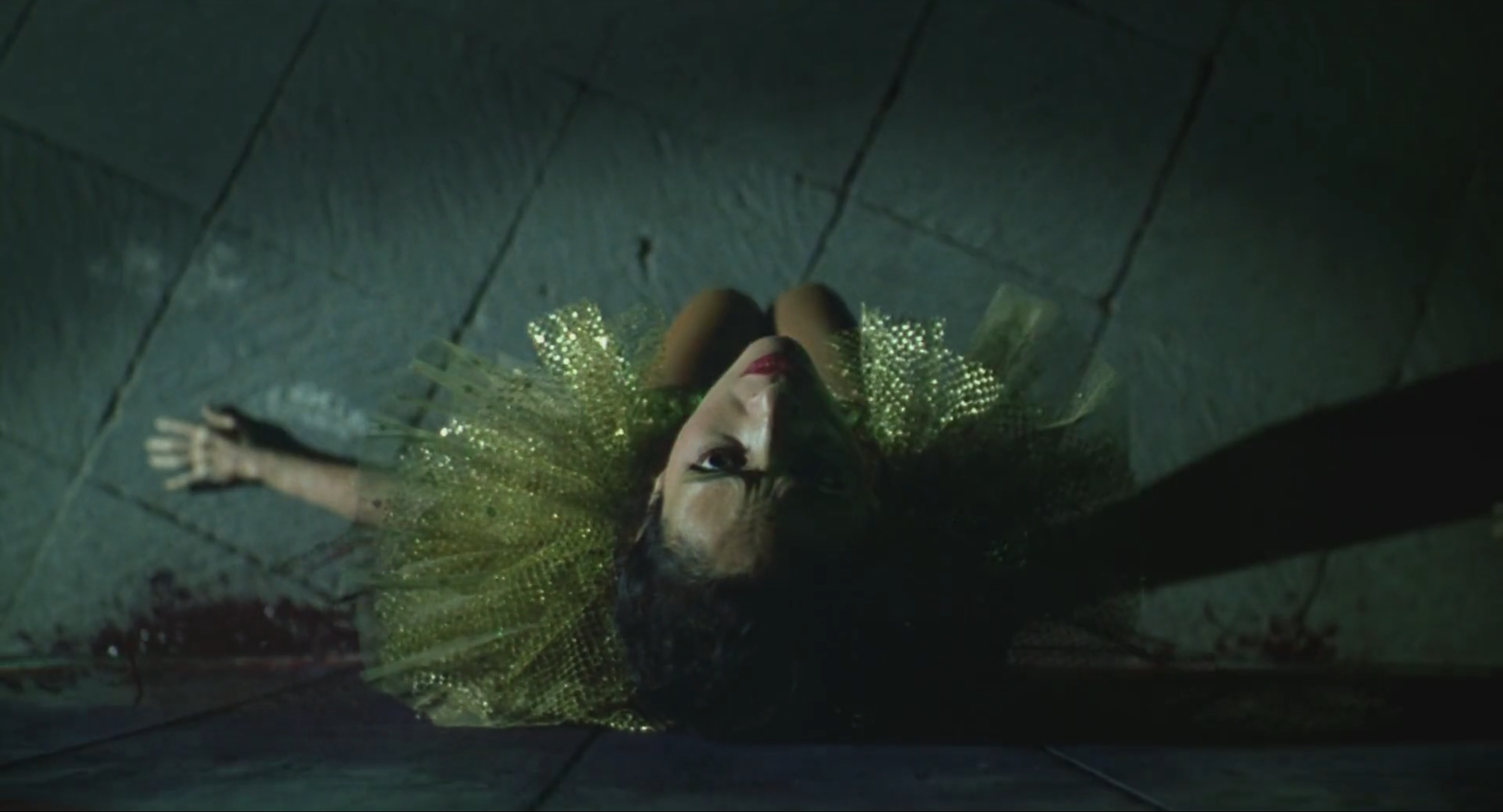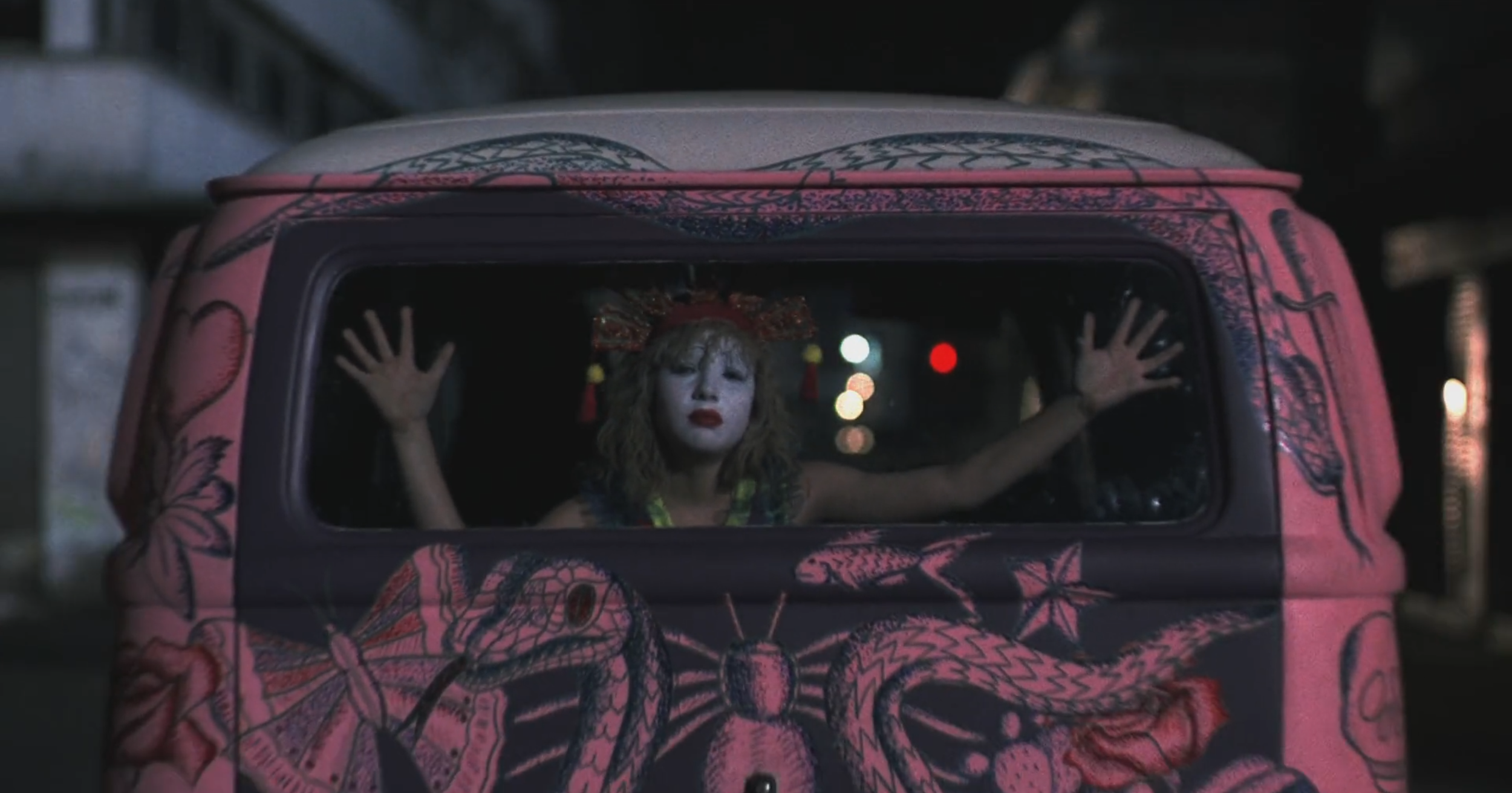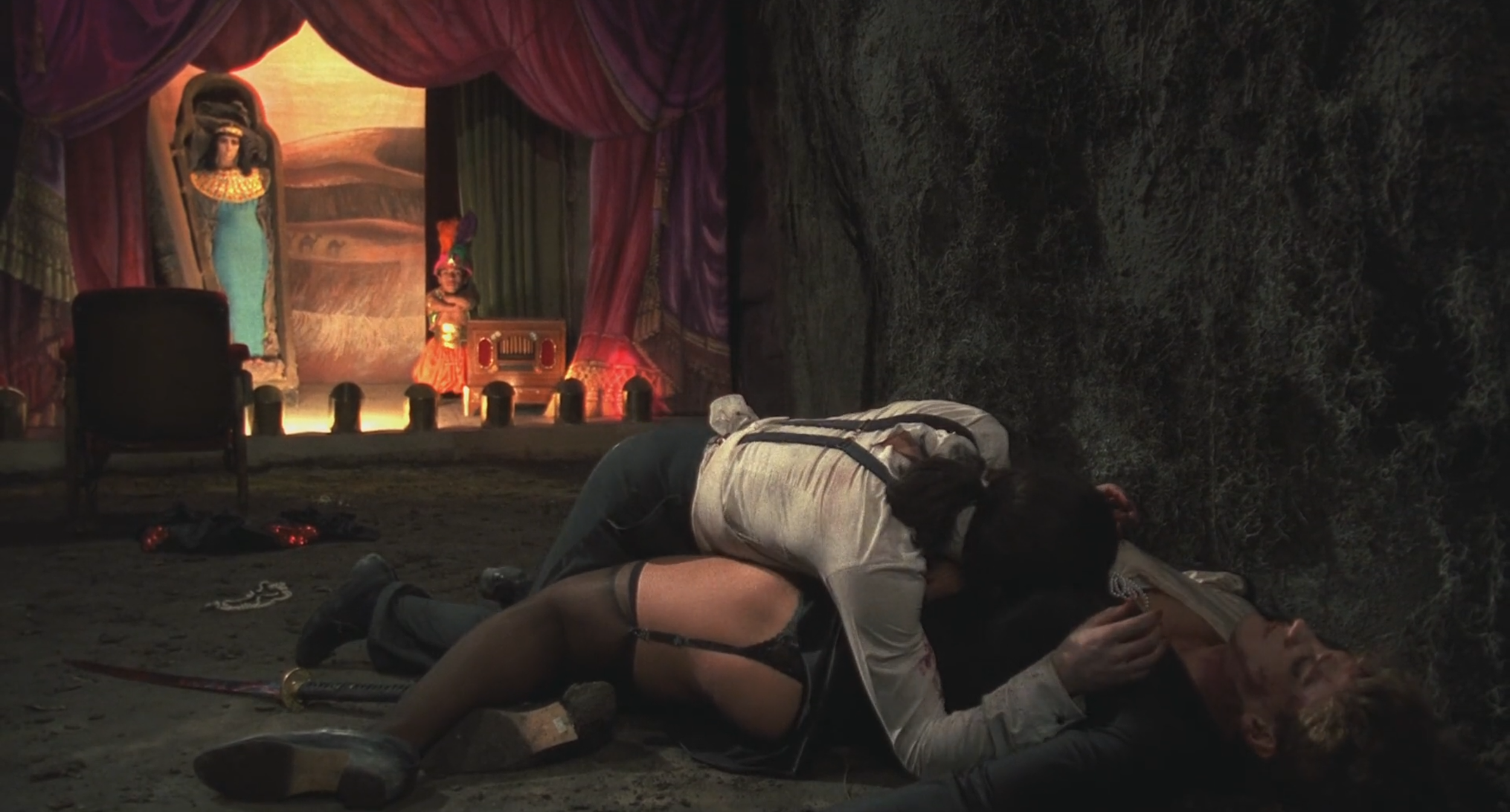Film Review: Santa Sangre (1989) by Alejandro Jodorowsky
Hitchcock's Psycho meets Browning's Freaks (meets psychosis-induced psychedelia).
March 2021
Text by Ignacio Hitters
"You can't atone for your sins with nightmares."
Being a fan of Jodorowsky (Chile, 1929) has become trendier over the years. His brand of psychedelia-heavy abstract filmmaking, blurring the line between reality and fiction, has proven to be incredibly influential for an incalculable amount of artists and creators. Both El Topo (1970) and The Holy Mountain (1973) are considered classics in the field, and watching them is almost considered a rite of passage for any film buff. However, the more lineal, less cerebral Santa Sangre could be his crowning achievement, the movie he’d been working towards as an artist for a long time. Even Jodorowsky himself has stated that Santa Sangre was made “with (his) heart” as opposed to his previous films, which were made “with (his) head”. This really shows. While Santa Sangre is a well-structured movie, it never feels forced, or try-hard (unlike some of his more spiritual, philosophical works). It does fully feel, though, like a passion project from one of cinema’s biggest provocateurs and trailblazers, one who isn’t afraid of wearing his influences on his sleeves, or heavily provoking his audiences. Santa Sangre is a wild, cult-and-clown-filled ride. It’s Hitchcock’s Psycho (1960) meeting Browning’s Freaks (1932), and if you haven’t seen it yet, you better be ready for it.
The story follows Fénix (portrayed as an adult by Jodorowsky's son Axel, and as a kid by his then-youngest, Adan), a mentally unstable young adult institutionalised in a sanatorium. His erratic, animalistic behaviour is our introduction to him, letting the audience wonder what caused him to be such a character. What follows is a series of flashbacks (set in a raw, trumpet filled depiction of Mexico) portraying his childhood traumas. His father Orgo was a sadistic circus performer whose masculinity is either based on sex or violence or both. His mother, Concha, led the "Santa Sangre" pagan cult, based on the murder and rape of an armless woman who becomes a martyr to them. Fénix is branded with a chest tattoo (which, just like the character's name suggests, is an intricate drawing of a phoenix, the bird that rises from the ashes of death), and forced to follow his father's footsteps. After witnessing sadomasochism and the death of the circus elephant, Fénix witnesses the biggest cause of his trauma - his mother's brutal murder by his father's hands (after she burnt down Orgo's genitals with acid), quickly followed by his suicide by self-inflicted knife wounds. This undeniably fucks Félix up mentally into a state of no return. After having the opportunity to leave the sanatorium for a night out with some of his fellow patients, he begins to see ghosts from his past, from his dad's mistress (a heavily tattooed, borderline nympho sadist), to his (now armless) mother, Concha. What follows is Fenix's attempt to make sense of it all and to rebuild his old life however he can, which might also mean turning into a Bates-esque killer, murdering in his mother's name as "her hands". Fénix is a direct consequence of his parents, but how far along inside him does he need to reach in order to understand this?
Sounds heavy, right? Well, it is, but at the same time, Jodorowsky effortlessly makes the movie’s tone a bit light-hearted. It’s almost an impressive feat to make such an enjoyable, heartfelt film deriving from such a hardcore script. Hardcore as is, it’s also so overwhelmingly over the top in its taboo themes that it even has quite a few comedic overtones (from the Mexican trumpeters and clowns following Orgo around all day long, to the morbidly obese hooker who is paid to have sex with six coked-up mental patients with intellectual disabilities). I know, Jodorowsky has a twisted sense of humour. He knows it and truly isn’t afraid of showing it, which I honestly consider a virtue. Think about anything that is “morally wrong”, and there’s a big chance that you’ll find that theme in this movie. Seriously, shock value is high in this film, even by today’s standards. Morale, though, is a very personal concept, and the film ends up being quite ambiguous when it comes to it. Is there really good and evil? To Jodorowsky, sort of. But not really. Maybe that’s not how it should be, but that’s how things are.
What makes this film particularly interesting is the contrast between structure and abstraction. While following a mostly linear plot, Jodorowsky really doesn’t care about reality, going for an absurdist tone that might remind one of a fable, or an old Disney movie á la Pinocchio or Dumbo. It’s possible to compare Santa Sangre with prominent writers of Latin-American magic realism such as Cortazar and García Marquez, showing in a way that as long as we have our own perspective on things, true reality is meaningless. If the events portrayed in the movie are real to the main character, does it really matter if they’re “real” or not? It is fun, though, to think about what is and isn’t, which is precisely what Jodorowsky intended.
Also worth mentioning is the fact that Jodorowsky himself worked as an entertainer in circus-related scenes, from studying mime for a few years to working as a clown in a circus, and even eventually becoming a theatre director. This adds to the idea of Santa Sangre being his most personal movie, along with how he has two of his sons performing as the main character in the film. In his own way, he’s paying homage to his old life, his old interests, and the movies that shaped him as a director throughout the years. These homages even extend to the camera work, replicating the infamous knife scene in Psycho (1960), or (even more obviously) the classic 1933’s Invisible Man scene where the main character removes his disguise, exposing “what” he really is.
Psycho (1960) - Alfred Hitchock
The Invisible Man (1933) - James Whale
Santa Sangre is widely ignored by most casual audiences, even by people who consider themselves fans of Jodorowsky’s work. I understand why Santa Sangre isn’t considered his most important movie, because it clearly isn’t, but it isn’t his reprobate movie either. In fact, even though Santa Sangre isn’t his “smartest” movie, or his “deepest” movie, I will always argue that it’s his most enjoyable by a long shot. It’s a perfect balance between arthouse and grindhouse, good and evil, love and hate, peace and chaos. More than anything, it’s full of life. And definitely not for everyone.










